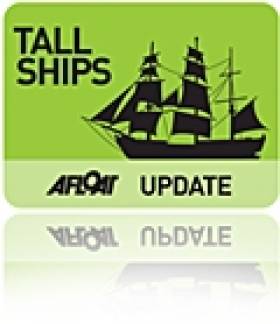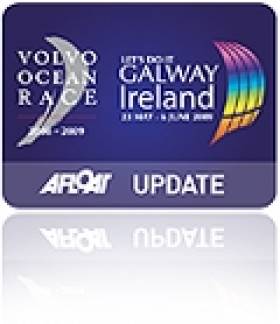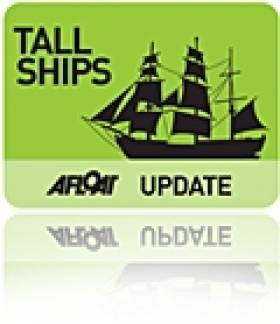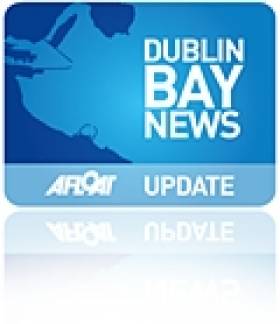Displaying items by tag: information
Tall Ship Sail Training Open to All With Autumn Voyages
#TALL SHIPS - Sail Training Ireland for Youth Development (STIYD) has announced a golden opportunity for the general public to sail on a tall ship.
Hot on the heels of the Tall Ships Races visit to Dublin this August, a series of three tall ship voyages have been scheduled to take place to and from Irish ports by the UK-based Jubilee Sailing Trust (JST) on its 65-metre tall ship Tenacious between 11 October and 4 November 2012.
The first sailing from Southampton to Dublin (via Waterford) runs for 10 days from 11-20 October, followed by a seven-day jaunt from Dublin to Belfast from 22-28 October, and another seven-day trip from Belfast to Milford Haven from 29 October-4 November. Each voyage will have room for 40 trainees.
Anyone aged 16 and above can join the voyage crew as a trainee, and no previous experience is necessary.
Tenacious is also specially designed to cater for the needs of people with varying degrees of physical disability, including wheelchair users.
Features on board Tenacious and her sister ship Lord Nelson include signs in braille, lifts between decks, power assisted and 'joystick' steering, wide aisles and low-level fittings, guidance tracks and other on-deck pointers, and a speaking compass with digital screen.
STIYD says it is committed to providing access to tall ship sailing for the people of Ireland. The JST has also offered these voyages at a greatly reduced rate to encourage Irish trainees to get on board with what is hoped can become an annual event.
“It is great to see that the international tall ship fleet is reacting to recent activity in Irish sail training," said Michael Byrne, manager at STIYD. "Now that there is a central point of contact for trainees and vessel operators through STIYD, we can expect to see more and more of this kind of activity.
"When the JST approached us with a proposal to run their Irish Sea programme we offered our full support in promoting the opportunity. A unique and hugely important aspect to the JST is its ability to cater for people with varying degrees of physical ability.”
Kyle O’Regan of STIYD's youth branch added: “It is great for Irish trainees that the JST has arranged for Tenacious to have an Irish Sea programme. Being able to join or leave in your own country is a major advantage in terms of lowering costs.”
Meanwhile, the JST's Grainne Arntz said the charity has shown its "commitment to Ireland" by scheduling these autumn voyages.
"Three years ago we introduced the Ultimate Transition Year Tall Ship Adventure, a programme whereby groups of Transition Year students from Irish schools experience the challenge of tall ship sailing with diverse people.
"These voyages in the autumn will allow more groups and individuals to avail of the unique JST experience of sailing on a tall ship with people of all ages and abilities.”
The tall ship voyages are priced at £775 per person for the 10-day trip, and £525 per person for the seven-day excursions. To book your voyage with the JST visit their website HERE or call +44 23 8044 9108.
For information on the Irish branch of the Jubilee Sailing Trust visit www.jstireland.ie. For general information on sail training activities in Ireland contact Sail Training Ireland, Port Centre, Alexandra Road, Dublin 1 at 01 887 6046, e-mail [email protected] or visit www.irishsailtraining.com.
STIYD is the national sail training organisation for Ireland and is endorsed as such by Sail Training International. The vision of STIYD is to “provide access to the sail training experience for the people of Ireland”.
Volunteers Wanted for VOR Galway Festivities
#VOLVO OCEAN RACE - Organisers of the Volvo Ocean Race finale in Galway are appealing for 2,000 volunteers to help make the stopover a rousing success.
The eight-day festival of the marine, sport, arts and culture, entertainment and food to celebrate the arrival of the Volvo Ocean Race competitors as they cross the finish line is expected to attract as many as 700,000 visitors to the City of the Tribes from 30 June to 8 July.
Let's Do It Galway are looking for students, retirees and "anyone in the Galway community" willing to commit from two to nine days during the week to take part in what they describe as "a great way to make new friends and boost career prospects while boosting Galway and Ireland in the eyes of the world".
All volunteers will be invited to a special 'wrap-up gala', and organisers also promise prizes and surprises along the way.
Information sessions will take place throughout April and May in and around Galway, and applicants will be matched to roles in early June.
The Galway Independent has more on the story HERE.
Tall Ships Training Opportunities for Young People Across Ireland
#TALL SHIPS - The organisers of the Tall Ships Races visit to Dublin are inviting young people to get involved by becoming 'trainees' aboard the fleet as they race from Spain to Ireland this summer.
The 18 ships (as of last November) are set to sail from A Coruña in northern Spain to Dublin on the final leg of this year's race over an estimated ten-day period from 13-23 August.
Young people across Ireland can now apply to be trainees on board the tall ships and take part in a voyage as crew. No previous experience is necessary.
Open information days are planned for this weekend from tomorrow (Friday) 17 February to Sunday 19 February from 12pm to 6pm daily at the CHQ building in the IFSC, close to the Jeannie Johnston museum.
Anyone that is interested in taking part or receiving further information can register at www.dublintallships.ie/trainees/
Meanwhile, organisers are also making funding available for the young people of the capital.
The Dublin City Tall Ships Funding will cover the costs of 25 trainees from Dublin to sail on the ships as they race from Spain.
Any youth organisation within Dublin City Council Administrative Area can nominate members of their organisation. Alternatively, individuals may apply and seek the nomination of a youth organisation such as a youth group or community group; school or college; sports club or Scouts group.
Details about this funding programme and other opportunities are included in the information bulletin attached below.
For further information contact trainee recruitment officer Michael Byrne at [email protected].
Gardaí Renew Appeal for Witnesses to Liffey Death
Dublin Gardaí are still appealing for information on the drowing of a Co Tyrone man in the River Liffey last weekend.
RTÉ News reports that Aiden Mullen, 35, had been socialising in the city after the All-Ireland Football Championship match at Croke Park on Saturday 30 July.
At around 3.20am last Sunday morning, Mullen was waiting with his brother and friends on Burgh Quay for taxis home when he broke away from the group and approached the river wall.
He was last seen falling into the water by his brother, who jumped in to assist him. Both men, as well as three passers-by who entered the water to help, got into difficulty.
Dublin Fire Brigade rescued four from the river, but Mullen's body was discovered shortly after.
Gardaí say a number of witnesses have already come forward, but they would like anyone else with information to contact them at Pearse Street Garda Station.
Just One Week To Go Till Red Bull Flugtag
The Red Bull Flugtag celebrates its 100th event in Dun Laoghaire next Sunday, and organisers have posted details for spectators planning to spend the day cheering on those magnificent flying machines!
The site for the free event will open at 12 noon, with the show taking place from 1pm till 4.30pm. All public access to the event site is via Dun Laoghaire Harbour/East Pier beside the National Yacht Club (the viewing area for those with disabilities is on Carlisle Pier beside the Royal St George).
There are a number of road diversions and parking restrictions to be aware of, full details of which are listed HERE. Temporary signage will advise motorists of impending diversions, and there is ample parking available at the Pavilion, Bloomfields and the IMC cinemas.
Visitors can also arrive by public transport, with bus routes 7, 7a, 46a, 75 and 111 all running to Dun Laoghaire. DART services will also run every 30 minutes and extra capacity will be provided.
The organisers wish to remind all spectators that the Red Bull Flugtag is a family event, and the consumption of alcohol in public will not be permitted.
Watch the world flugtag record being set in Minnesota last year. Maybe a new one will be set in Dun Laoghaire next weekend?


































































